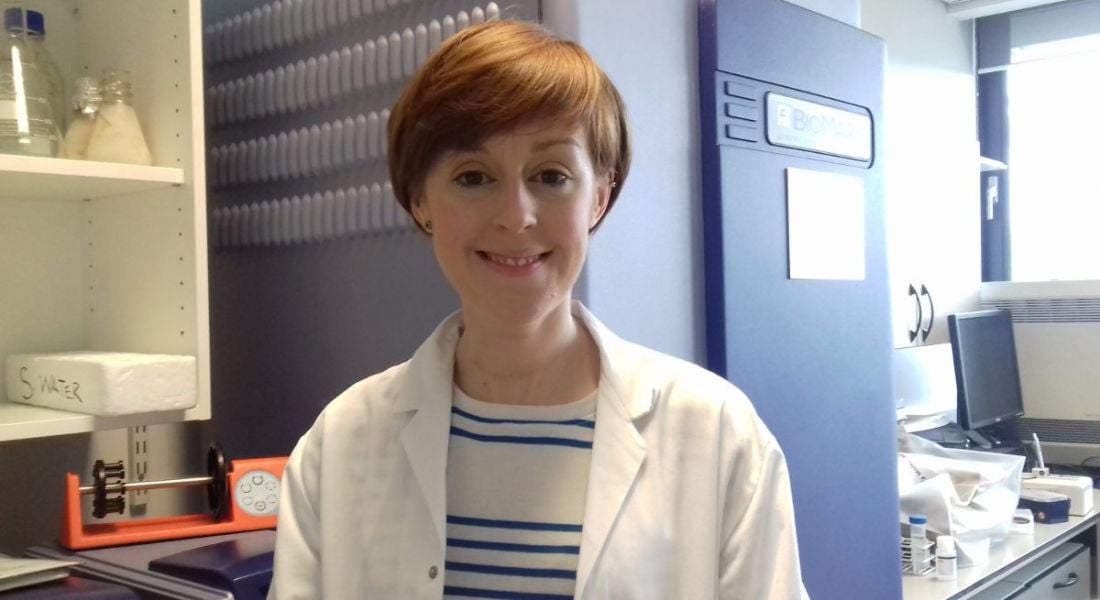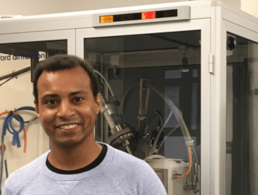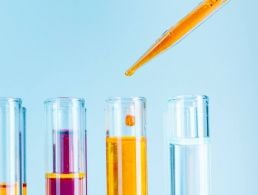In a brand new series, In Plain English, we ask researchers to break down their work and give us an insight into their research, in a way that even those without a science background can understand.
Humankind is advancing at a faster rate than at almost any point in history. Without research, that advancement would be impossible. As such, understanding the research that’s building our future can give us an exciting glimpse of what to expect and how our lives could improve.
Here, Dr Niamh Mannion, a postdoctoral researcher at the Paul O’Gorman Leukaemia Research Centre, University of Glasgow, explains her work with leukaemia research and outlines its possible benefits.
What is your role within this organisation?
I am a postdoctoral researcher.
What steps led you to the role you have now?
At school, science was always my favourite subject, so after my Leaving Cert, I moved to Scotland to study biomedical science at the University of Aberdeen.
It was during my undergraduate degree that I got my first taste of lab research. I really enjoyed it, so I went on to do a master of research (MRes) in biomedical neuroscience at the University of Glasgow. The MRes gave me the time and experience to be confident that I wanted to pursue a career in research, and the next logical step for me was to do a PhD.
I attained a PhD studentship at the University of Edinburgh and, three years of research later, I graduated with a PhD in molecular and clinical medicine. Focusing on a career in translational research, I currently work as a postdoctoral researcher at the Paul O’Gorman Leukaemia Research Centre at the University of Glasgow.
Can you tell us about the research you’re currently working on?
Leukaemias are cancers of the blood system, and they can be divided into acute (fast) and chronic (slow) in terms of their development. I work on the most common acute leukaemia in adults: acute myeloid leukaemia (AML).
Leukaemia stem cells (LSCs) are thought to be responsible for causing the disease, which develops when normal blood cells acquire mutations that affect their growth and development into functional blood cells. As time goes on, these LSCs evolve and gain additional mutations, making them even more complex.
The current standard treatments – such as chemotherapies – fail to remove these leukaemia-initiating cells and result in patients relapsing. Additionally, chemotherapies are toxic to normal healthy blood cells as well as the leukaemic cells.
My current research focuses on understanding some of the fundamental mechanisms underlying the initiation, maintenance and survival of these leukaemia stem cells, and identifying new targets that are required for LSC survival but aren’t needed for normal blood cell survival.
The overall aim of this research is to develop new therapies against these unique targets. The therapies will kill LSCs specifically, and eliminate the disease.
What first stirred your interest in this area?
My motivation has always been the power of scientific research, its translation into practice and, ultimately, contributing to the improvement of overall healthcare. Although my PhD was clinically relevant, that was more ‘big picture,’ and I wanted to be working directly towards translational research.
The opportunity to work at the Paul O’Gorman Leukaemia Research Centre itself attracted me to the area, as it is renowned for its cutting-edge translational research. Having never worked in the leukaemia (or cancer) research field previously, it was a steep learning curve, but if you are willing to put in the extra work, you aren’t limited to one area of research. In any field of science, you are continuously learning new things.
If there is such a thing, can you describe a typical day for you?
A typical day would be a combination of ‘wet’ (lab) and ‘dry’ (computer) work.
In the lab, I use and manipulate cell line models that have been derived from patients with AML. I am currently focused on two main genes of interest, which we already know are needed by the leukaemia stem cells for survival, but we do not fully understand why. Therefore, using molecular techniques, I can manipulate the levels of these genes inside the cells and do a number of tests to see what is changing.
Data analysis and interpretation is usually done at a later time point. Therefore, being organised and recording your lab work is essential.
Technical issues are always inevitable – one day a certain technique works perfectly and the next day it fails, so there is a degree of troubleshooting and investigation into why something isn’t working as it should. Sometimes you get to the bottom of it, other times it’s just an anomaly. (As a scientist, if it’s the latter, it is hard to accept and move on.)
In addition to my own research responsibilities, I also supervise and teach our research students, which is something I really enjoy because of their enthusiasm and excitement at even the simplest experiment.
What skills and tools do you use on a daily basis?
I would say that, in addition to the technical side of things, communication, time management and organisational skills are essential everyday skills. You really need to prioritise your work and manage your time efficiently.
In relation to analysing and interpreting data, there are a lot of resources and databases online that we use to investigate and compare our data to.
Also, when you are troubleshooting an issue, there are research forums where scientists discuss the problems they’re experiencing and offer advice to one another, either based on previous experiences or their knowledge in the area. (This can save a lot of time.)
What applications do you foresee for this research?
Ultimately, we would hope that our research identifies new targets, leads to the development of new therapies that can be translated clinically, and results in the improvement of patient healthcare.
Are there any common misconceptions about this area of research?
When people ask me what I do for a living and I respond with, ‘I’m a scientist’, I am always met with something along the lines of, ‘Oh wow, that’s cool!’. As cool as it is, as with any job, there are a lot of finer details associated with it that take away from the cool factor.
As an academic research scientist, it’s almost impossible to work set hours – your time is governed by your experiments, which unfortunately don’t meet the requirements of a ‘normal’ work day. (Note: this can work in your favour.) You inevitably have to come in at weekends to feed your cells or harvest a time point, and nothing usually works at the weekend.
Hard work doesn’t necessarily translate to new discoveries, which is ultimately what our funding and jobs depend on. The pressure to publish your work is real, and grant applications for limited funding is a big part of the job.
When you first started work as a researcher, what were you most surprised to learn was important in the role?
Thinking back now, I definitely thought I would be in the lab performing experiments all of the time, which makes me smile because that is not the case at all, and rightly so.
There’s always an experiment to be done. You will never have all of the answers, but, to do the right experiments, it is important to communicate your research with your peers, collaborate with other labs with different expertise and engage with the scientific community. Be open to their critique as it will benefit your research.
What do you enjoy most about your career in research?
Without a doubt, it has to be the possibility that my work could lead to that major breakthrough that will translate clinically to benefit patient healthcare.
Calling all researchers! Showcase your research in front of an international audience at Researchfest 2017. Find out how to enter here.




